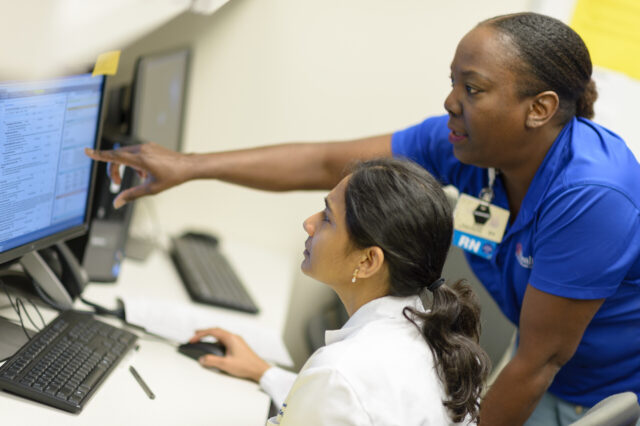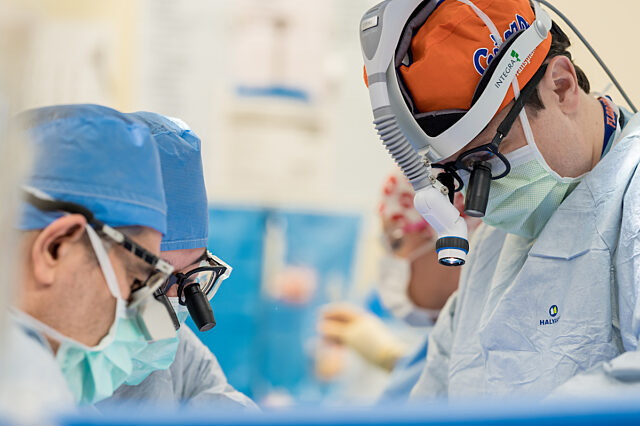Make a gift
Help support our pancreas transplant patients by making a gift to our UF Health Patient and Family Transplant Housing program.
Update your location to show providers, locations, and services closest to you.
The UF Health Shands Pancreas Transplant Team has performed more than 100 transplants in the last nine years.

The UF Health Shands Pancreas Transplant Program has performed more than 100 transplants in the last nine years.
Pancreas transplantation is one option available for people with Type I diabetes mellitus. A successful transplant can eliminate the need for insulin and return you to a more normal lifestyle. However, the success of the transplant depends on you.
There are three types of pancreas transplants:


UF Health is the national leader for liver, kidney and lung transplantation, based on data published by the Scientific Registry of Transplant Recipients.
Help support our pancreas transplant patients by making a gift to our UF Health Patient and Family Transplant Housing program.
Today, more than 5,000 patients listed at Florida transplant centers await a lifesaving organ transplant. You have the power to Donate Life. Sign up to become and organ donor!
Pancreas transplant is less common in people with Type II diabetes mellitus, if it’s an option at all. Some people with Type II diabetes who have a lower BMI and require low amounts of insulin may qualify for a pancreas transplant, but it is rare. In Type II diabetes mellitus, the pancreas produces insulin, but the body's cells have a relatively low sensitivity to the insulin and are therefore unable to use the insulin in a beneficial manner. People with Type II diabetes suffer from constant hyperglycemia despite the insulin produced by their pancreas and usually have to take oral medication to control their blood sugar.
During transplant surgery, your donated pancreas will be placed in the lower abdomen and connected to large blood vessels and the intestines. Each pancreas transplant procedure requires that the incision is made in the middle of the lower half of the abdomen. If you are receiving a kidney and a pancreas, they will both be placed in the lower abdomen.
A pancreas recipient will usually stay in the hospital for 7-10 days due to your intestines taking more time to wake up and function after this operation. During this time, you will be recovering and learning about your new organ(s). Daily labs help the transplant team manage the medication doses. You will also be given information on how to care for your new organ and live a healthy life.
Our Patient Education section gives you information about the pancreas transplant process, from being evaluated as a candidate, what to expect during the procedure, and aftercare.







Our community and patient programs provide great value to patients, families and loved ones. People can find support, educational materials, expert consultants and more. In most instances, these programs are offered free of charge.
Provides supportive care for select adult and pediatric patients through meditation, relaxation, yoga, tai chi, qigong and massage therapy sessions.
Offers a wide variety of music-based therapies from in-room performances to collaborative recording sessions.
Peer companionship for adolescents and young adults living with serious illness.
July 13, 2023
Liver transplant program outcomes No. 1 nationally, kidney a close second
Department of Surgery, +2 more

For 18 years, Sandra “Sandy” Demasters-Reynolds, M.S.N, R.N., CCTC, has served as the living donor program manager at the UF Health Shands Transplant Center.…
